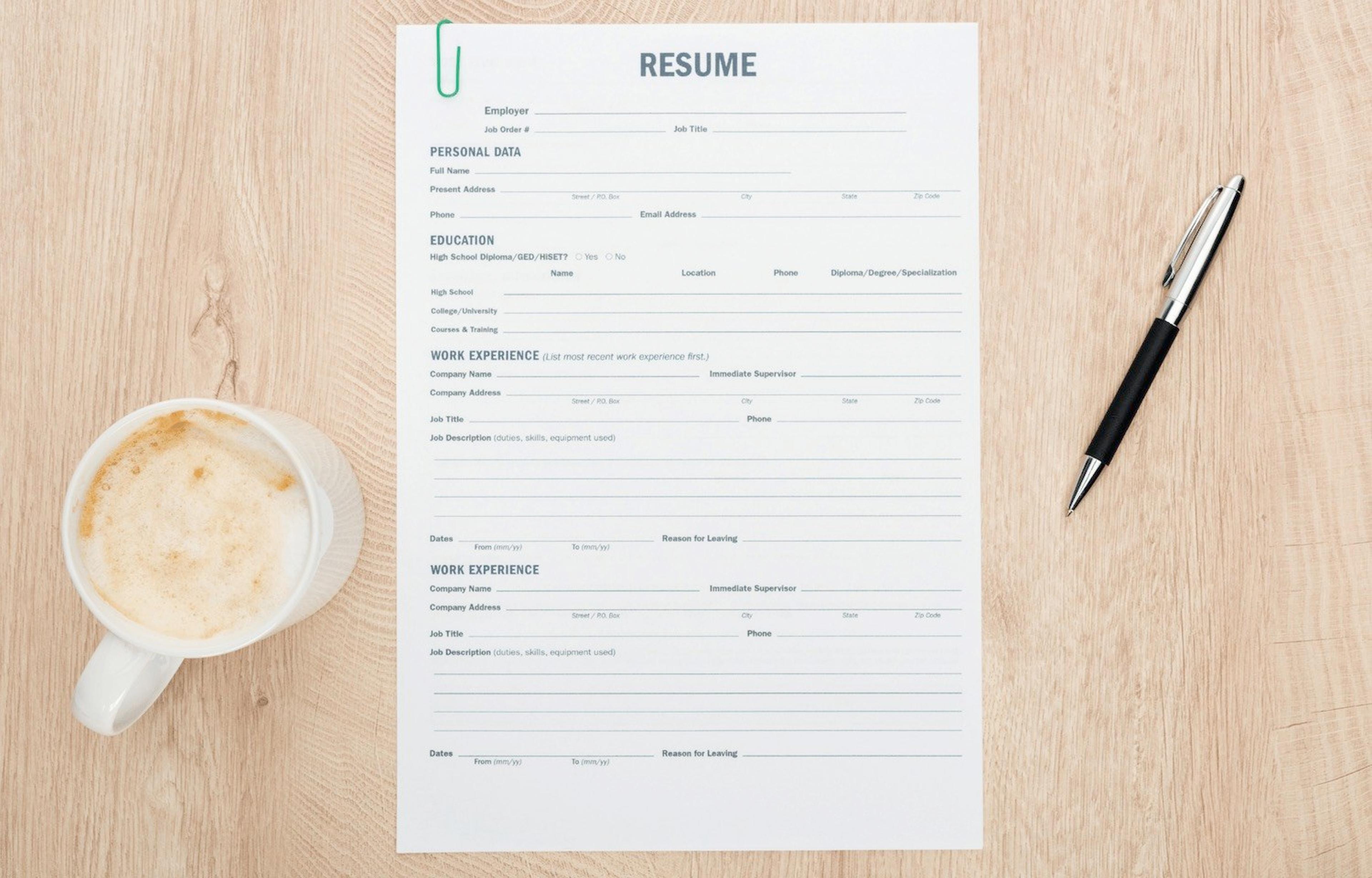Personal Statement for MPA Programs: Examples & Expert Advice
Learn how to write a compelling MPA personal statement with expert tips, examples, and advice to stand out in your graduate school application.
Posted November 4, 2025

Join a free event
Learn from top coaches and industry experts in live, interactive sessions you can join for free.
Table of Contents
The MPA personal statement is one of the most important parts of your graduate school application. It provides you with an opportunity to explain why you want to pursue a Master’s degree in Public Administration, what your career goals are, and how your academic background and life experiences have prepared you for graduate studies. Writing a strong personal statement can significantly impact your chances of acceptance, as it allows the admissions committee to understand your motivations, your fit for the program, and your potential as a future leader in public service.
In this guide, we will walk you through the key components of a strong MPA personal statement, how to tailor it for specific programs, and provide useful tips to make your application as competitive as possible.
Understanding the Purpose of an MPA Personal Statement
What is an MPA Personal Statement?
An MPA personal statement is an essay that allows you to explain why you want to pursue a Master’s degree in public administration, your professional goals, and how your academic journey and life experiences have shaped your decision to apply. It’s your chance to show the admissions committee your motivation for graduate study, as well as your potential to contribute to the program and the field of public service.
Why is it Important?
A well-written personal statement is your chance to stand out from other applicants. Graduate programs receive many applications from students with similar academic backgrounds, test scores, and recommendations. The personal statement allows you to demonstrate your commitment to public service and show the admissions committee that you are a good fit for their specific program. Your personal statement helps explain your career plans and research interests, providing context that goes beyond your resume.
Read: MBA vs. MPA: How to Decide Which One is Right For You
Components of a Strong MPA Personal Statement
1. Introduction: Start Strong
The opening paragraph of your personal statement should grab the reader’s attention and set the stage for the rest of your essay. This is where you introduce yourself and clearly explain your interest in public administration and why you are interested in pursuing an MPA. Avoid vague statements and focus on specific examples that show your passion and commitment to the field.
Example:
"From my undergraduate experience volunteering with local nonprofits, I developed a strong interest in public service. I’ve always believed that positive change starts at the community level, and I want to further my impact through an MPA program that will help me lead in government and public policy."
2. Academic Background and Life Experiences
This section should highlight your academic background and any relevant experiences that have prepared you for graduate studies in public administration. Be sure to include life experiences such as internships, volunteer work, or personal challenges that have shaped your career interests. You should demonstrate that you have the academic foundation, skills, and knowledge necessary to succeed in graduate study.
What to Include:
- Your undergraduate studies and any coursework relevant to public administration, political science, or government.
- Life experiences, such as internships or jobs that influenced your career goals and sparked your interest in public service.
- Any leadership roles or professional development that have prepared you for the challenges of an MPA program.
Example:
"During my internship with the local city council, I participated in policy discussions and community outreach programs. This hands-on experience solidified my desire to pursue a career in public administration and motivated me to seek a deeper understanding of policy and government management."
3. Motivation for Pursuing an MPA
In this section, explain why you are pursuing an MPA and how it aligns with your career goals. Be specific about your motivations for pursuing a graduate degree in public administration and how you plan to apply what you learn in the program to your future career. Show the admissions committee that you have a clear vision for your future and that the program will help you achieve your goals.
Example:
"I’m committed to public service because I believe in the power of effective government to make a positive impact on people’s lives. With an MPA, I hope to become a leader in policy development and work toward reforms that will make public services more accessible and equitable. My goal is to develop and implement policies that improve the quality of life for underserved communities."
4. Fit with the Specific Program
One of the most important aspects of your personal statement is demonstrating that you are a good fit for the specific program you are applying to. This section should explain why you have chosen this particular MPA program and how it aligns with your academic interests, career goals, and research interests. Show the admissions committee that you have researched the program and understand what it offers.
What to Include:
- Why this program fits your research interests and career plans.
- Specific courses, faculty, or program features that you are excited about.
- How the program will help you develop the skills and knowledge needed to succeed in public administration.
Example:
"I am drawn to your MPA program because of its emphasis on public policy analysis and the opportunity to work with faculty like Professor [Name], whose work in community engagement aligns perfectly with my interests. The program’s focus on policy research and leadership development will help me acquire the skills I need to succeed in my career."
Read: The Power of ‘I’ Statements in Admissions Storytelling
Common Mistakes to Avoid in Your MPA Personal Statement
Being Too Generic
Don’t write a personal statement that could apply to any applicant. Focus on your unique experiences and what sets you apart. Avoid clichés like “I’ve always wanted to help people.” Be specific about your motivation and commitment to public service.
Failing to Connect with the Program
It’s crucial to tailor your personal statement to the specific program. Mention faculty, courses, or program aspects that attracted you to the school and show that you’ve done your research.
Overloading with Personal Life
While sharing personal experiences is important, don’t let it overshadow your academic and professional achievements. Your personal statement should show that you are academically prepared for graduate study and have a clear vision for your career.
Examples of Strong MPA Personal Statements
Here are some examples of strong MPA personal statements that effectively demonstrate the key components mentioned above:
Example 1: Political Science Background with Government Internships
If your background includes political science or internships with government agencies, your personal statement should highlight how these experiences have shaped your passion for public service and prepared you for graduate study. Here’s how you could approach this:
Opening Story:
"Growing up, I watched my city council meetings on TV with my father, who worked as a community organizer. The discussions about affordable housing, healthcare, and public safety sparked my interest in public policy at an early age. When I interned at the State Department of Housing, I was able to see firsthand how public policy decisions directly impact the lives of residents in our community. That internship reinforced my desire to pursue a career in public policy and equipped me with the tools to drive change through government channels."
Skills and Experience:
"During my internship, I worked on a research project analyzing the effects of urban zoning laws on low-income housing availability. I collaborated with senior policy analysts, gathering data, conducting surveys, and contributing to a policy brief. This experience strengthened my research skills and gave me a deeper understanding of how government policies can either alleviate or exacerbate societal issues."
Connection to MPA Program:
"I am particularly drawn to the MPA program at [University Name] because of its focus on policy analysis and its unique partnership with local government agencies. I believe the hands-on experience and mentorship opportunities provided by the program will allow me to refine my research and policy-making skills, preparing me for a leadership role in urban development."
Long-Term Vision:
"After earning my MPA, I plan to work in public policy at the state level, advocating for housing reforms that prioritize affordable living spaces for low-income communities. My long-term goal is to influence policy at the national level, driving systemic changes that address the housing crisis in cities across the U.S."
Example 2: Transitioning from a Non-Public Service Background
If you're coming from a non-public service background, such as the private sector, your personal statement should focus on how your skills are transferable to public administration. Here’s an example:
Opening Story:
"For the past five years, I have worked as a project manager in the tech industry, leading teams to develop software solutions for clients in various sectors. While I enjoyed the fast-paced nature of the work, I began to feel a growing desire to make a more direct impact on the public sector. Volunteering with a nonprofit organization that provides job training for underprivileged youth opened my eyes to the potential of combining my management skills with public service."
Skills and Experience:
"In my role at [Company], I led cross-functional teams to implement systems that improved workflow efficiencies, cutting down project timelines by 20%. I used my skills in stakeholder management, budgeting, and data analysis to ensure projects were delivered on time and within budget. These skills are directly applicable to managing public programs, where efficient resource allocation and effective leadership are crucial for success."
Connection to MPA Program:
"The MPA program at [University Name] aligns perfectly with my goals because of its focus on nonprofit management and its emphasis on leadership in public service. The courses in public finance and organizational leadership will help me transition my skills from the private sector to the nonprofit world, where I hope to lead initiatives that empower marginalized communities."
Long-Term Vision:
"In the future, I envision myself running a nonprofit organization that partners with local governments to provide job training and educational resources to underserved communities. By combining my project management expertise with the knowledge gained through the MPA program, I aim to create sustainable programs that bridge the gap between private industry and public service."
Example 3: Personal Story of Overcoming Challenges
If your personal journey involves overcoming significant challenges, your statement should focus on how those experiences shaped your drive for public service. Here’s how you might frame this:
Opening Story:
"As a first-generation college student, I faced significant challenges growing up in a community where higher education was not always seen as an achievable goal. My parents worked multiple jobs to provide for our family, and I often had to navigate systems that were difficult to understand. Despite these challenges, I was determined to pursue a career where I could make a difference, which led me to study public policy and volunteer at local community centers."
Skills and Experience:
"My time volunteering at a local community center, providing educational support to underprivileged children, taught me how policies directly impact access to resources. Through this experience, I realized that the most effective way to drive social change is through policy that addresses the root causes of inequality. This experience fueled my passion for public service and gave me a deep understanding of the barriers faced by underserved communities."
Connection to MPA Program:
"The MPA program at [University Name] offers a unique opportunity to build on my experiences by focusing on social policy and community development. I’m particularly excited about the program’s focus on data-driven decision-making and policy analysis, which will help me develop the skills necessary to create impactful programs that address systemic inequality."
Long-Term Vision:
"I plan to work in social policy, focusing on education reform and expanding access to resources for underserved communities. In the long term, I hope to influence national policy on education, ensuring that all children, regardless of their background, have access to quality education and opportunities for success."
5 Expert Tips for Writing a Standout MPA Personal Statement
Start with Your Story, Not Just Your Resume
Think back to the pivotal moment when you realized you wanted to pursue a career in public administration. Maybe it was witnessing the impact of a government program, helping in your community, or working on a nonprofit initiative. Start your personal statement with this story. Whether it was a turning point in your life or a series of smaller experiences, this story serves as the foundation of your statement. It’s a way for the admissions committee to understand who you are, what motivates you, and why public service matters to you.
Your story doesn’t have to be dramatic. It just has to be real. Show how your journey shaped your desire to bring about positive change, and tie it back to the core values of public service. This is your chance to make a memorable first impression.
Link Your Goals to the Program
Admissions committees want to know why you’ve chosen their program, and how it fits with your professional and personal goals. Take time to research the program and find out what makes it stand out. Then, show how these elements will help you reach your career goals.
When you write about your goals, don’t talk about abstract ambitions. Be specific about how the program’s unique features will help you grow. This shows you’ve done your homework and you’re serious about becoming a part of that particular academic community. It also highlights why this program is the right fit for you.
Embrace the Value of Transferable Skills
Maybe you don’t come from a traditional public administration background, that's not a problem! Admissions committees know that not every applicant will have a perfect match in terms of previous experience. So, focus on the transferable skills you’ve gained throughout your academic career and work life. Skills like leadership, problem-solving, and management are all crucial in public service.
Tell the story of how your background, whether it’s in business, education, healthcare, or another field, has prepared you for the challenges of public administration. Maybe your leadership experience in a community organization, or your project management skills in another industry, have helped shape your ability to think critically and solve problems. These skills will be just as valuable in your MPA studies and beyond.
Address Challenges and Growth
One of the most compelling aspects of an MPA personal statement is how you address challenges and setbacks in your life. Rather than glossing over difficulties, discuss how these challenges have shaped your academic and professional growth. Be sure to show how these experiences have prepared you for the demands of graduate study.
The admissions committee values applicants who are reflective and can demonstrate how past struggles have strengthened their motivation and ability to contribute to the community of the program. Sharing these experiences adds a layer of personal experience that many applicants overlook.
Highlight Your Long-Term Vision
In your personal statement, it’s important to clearly outline your long-term vision for your career in public administration. Describe how you see yourself contributing to government, nonprofit organizations, or policy development once you complete your master’s degree.
Be specific about the leadership roles you hope to take on and how the graduate program will provide the training and knowledge needed to achieve these goals. This will show the admissions committee that you are not only interested in the program but also in how it will allow you to make meaningful contributions to the field of public service in the future.
The Bottom Line
Crafting a powerful MPA personal statement is your chance to differentiate yourself in a competitive graduate school process. By clearly articulating your academic background, career aspirations, and passion for public service, you demonstrate your fit for the program and your potential to make a meaningful impact. Make it personal, specific, and aligned with your long-term goals to capture the attention of the admissions committee and set yourself up for success in your graduate studies and beyond.
Ready to Craft a Standout MPA Personal Statement?
Reach out to our expert coaches for guidance and resources to strengthen your graduate school application. Contact us today to get started!
Also, join our free events for more strategic insights!
See: The 10 Best Graduate & PhD Admissions Consultants (2025): What They Do and When to Hire One
Read these next:
- Why ChatGPT Can’t Write Your Personal Statement
- Beyond the Checklist: How to Showcase Your Unique Skills and Experiences in Your Grad School Applications
- What Extracurriculars are Graduate Programs Looking For?
- Graduate Admissions: Myths Busted!
- A Word of Caution on Application Essays and AI
FAQs
What is an example of a good personal statement?
- A good personal statement describes your academic interests, career goals, and how your experiences prepare you for graduate study. Example: "My studies in political science sparked my passion for public administration, and I aim to deepen my knowledge through a Master’s program."
What is an example of a good master's personal statement?
- A strong statement clearly outlines your career goals and why the program aligns with them. Example: "I want to advance education policy and believe this program's focus on social equity will help me make an impact."
What makes a strong personal statement for PA school?
- A strong PA statement shows your passion for healthcare, relevant experiences, and commitment to the profession. Example: "My volunteer work in a clinic solidified my desire to become a physician assistant."
Is 2 weeks enough to write a personal statement?
- While two weeks may be tight, it’s possible to write a solid personal statement within that time frame if you’re focused. Start by reflecting on your academic interests, life experiences, and career goals, and then tailor the statement to the specific graduate program. Be sure to leave time for revisions and feedback from professors or mentors.
Browse hundreds of expert coaches
Leland coaches have helped thousands of people achieve their goals. A dedicated mentor can make all the difference.



















